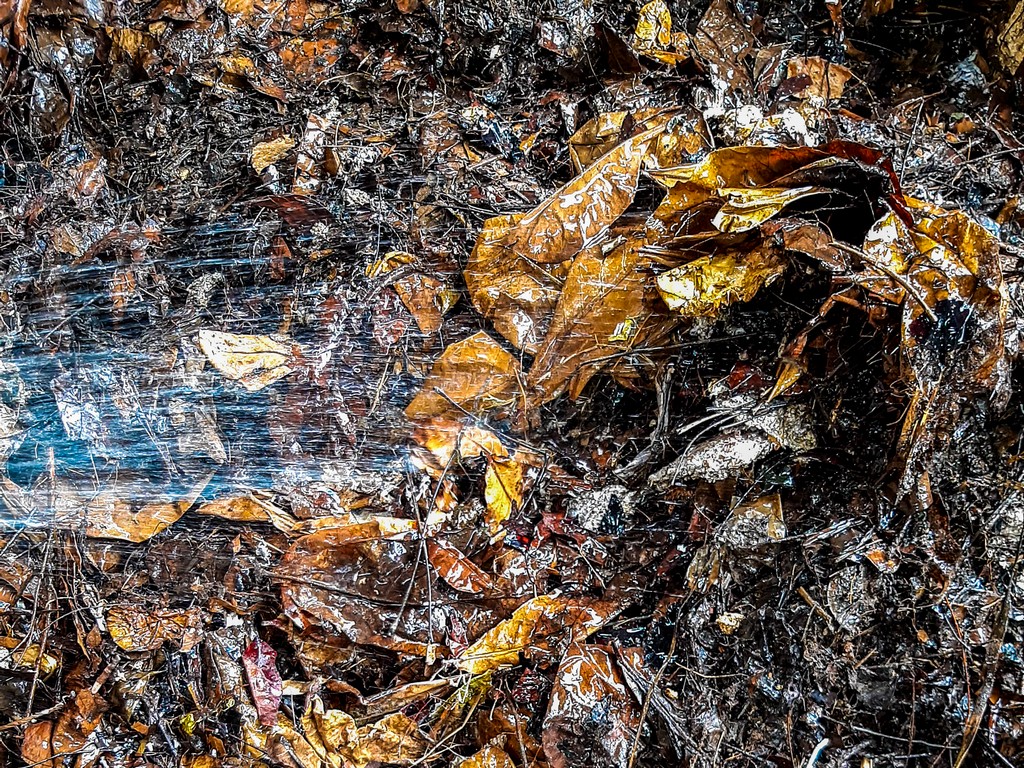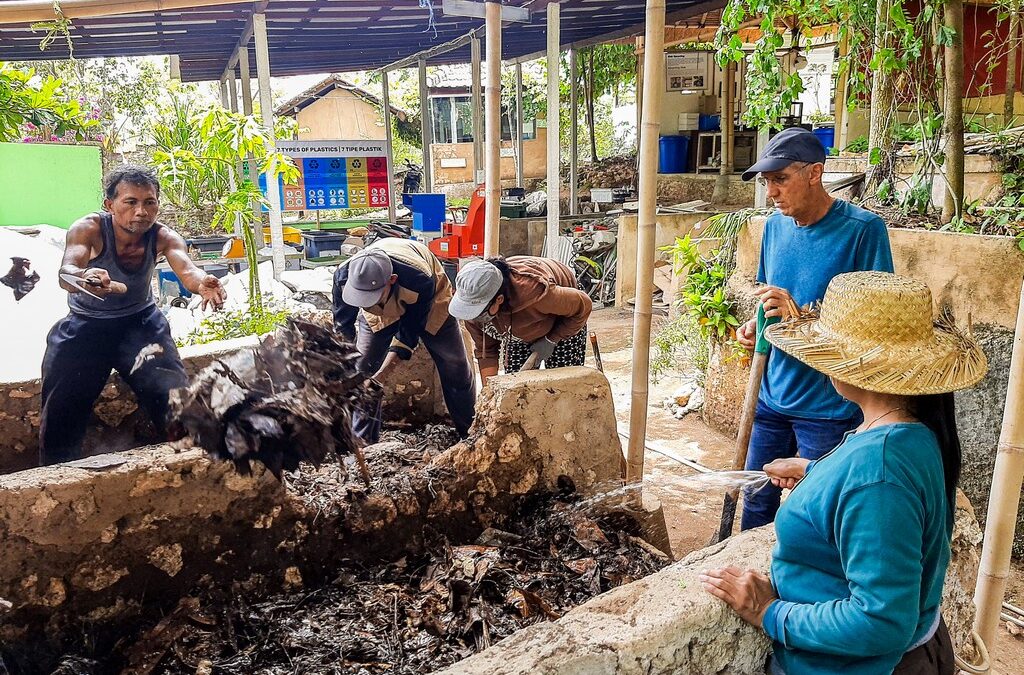Composting is one of the activities we conduct at the ZeroWaste Center. Being rich in nutrients, it serves as a necessary fertilizer for our permaculture gardens.
What is composting
Composting is the natural degradation process of organic materials, such as leaves and food scraps. Aerobic composting needs four components, usually called C-N-O-W. These are carbon (the dry and brown matters), nitrogen (the wet and green matters), oxygen, and water. By composting, the decomposed matter turns into a nutrient-rich, humus-like material, and this compost is a good fertilizer for plants and soil.
Aerobic composting in the ZeroWaste Center
ZeroWaste Center uses five composting compartments. In the first one, the raw organic materials are placed in layers of brown and green materials, and this needs to be watered daily or every 2 days to keep it moist. When this compartment is full, the contents are moved into the next compartment for further decomposition. In all compartments, watering and turning the materials is essential for the aerobic composting process. The compost is ready for use after approximately 2-3 months, ending up in the fifth compartment. This process can be speeded up to 2-3 weeks when turning and thorough watering is done daily.

The use of compost in our permaculture garden
Being located in the limestone-based and relatively dry Bukit area, the permaculture garden of the ZeroWaste Center needs compost to be fertile enough for the more than 100 types of plants that we have cultivated.
Want to know more about composting, permaculture, and waste management? Book a ZeroWaste Tour at the ZeroWaste Center!


Recent Comments